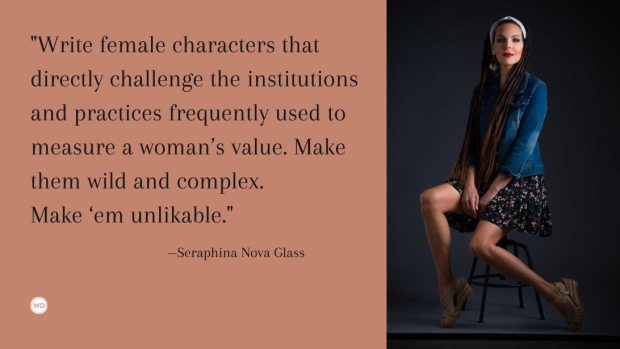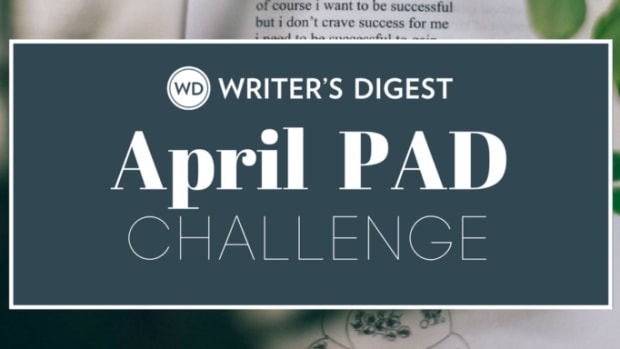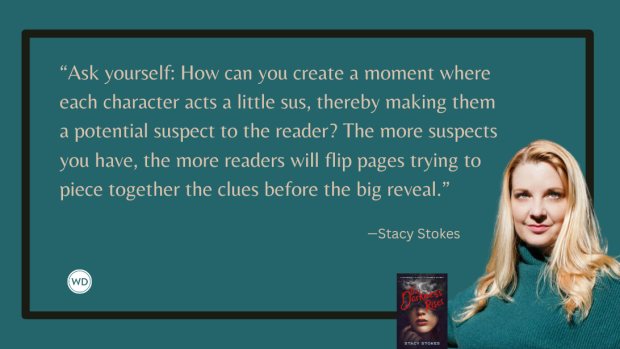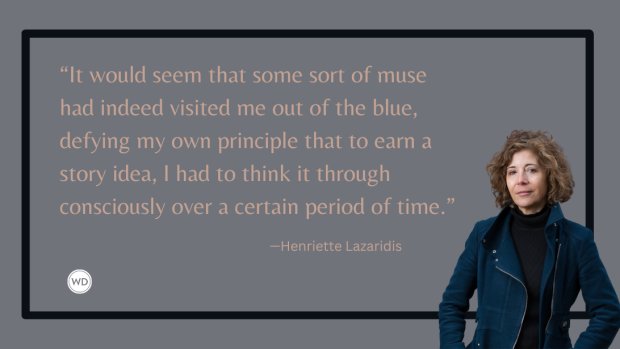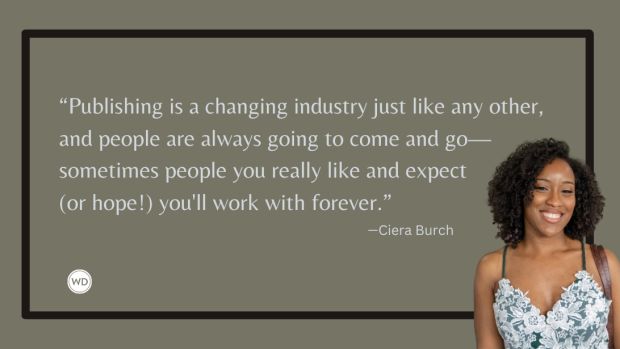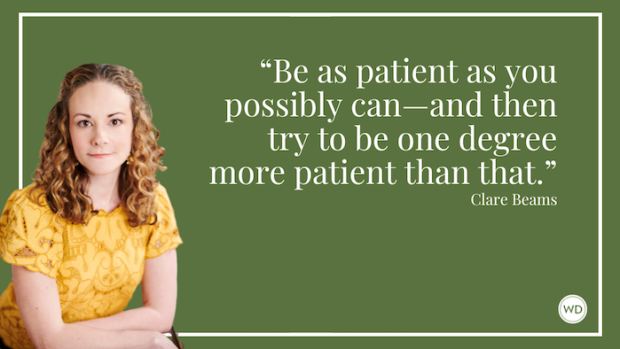10 Ways To Hook Your Reader (and Reel Them in for Good)
There are authors who have such fantastic first lines that they grab reader’s interest from the very first line. Take Jeffrey Eugenides for example:
“On the morning the last Lisbon daughter took her turn at suicide-it was Mary this time, and sleeping pills, like Therese—the two paramedics arrived at the house knowing exactly where the knife drawer was, and the gas oven, and the beam in the basement from which it was possible to tie a rope,” (from The Virgin Suicides).
Or, there’s Cheryl Strayed first sentence from Wild:
“The trees were tall, but I was taller, standing above them on a steep mountain slope in northern California. Moments before, I’d removed my hiking boots and the left one had fallen into those trees, first catapulting into the air when my enormous backpack toppled onto it, then skittering across the gravelly trail and flying over the edge.”
But it isn’t the first sentences that made these books best sellers it was the author’s ability to hook readers and keep them hooked. If a writer wants a writing career we need to practice the craft of both hooking and keeping; it’s not about the one night stand, it’s about the relationship.
(10 ways to start your story better.)
When I wanted to write an essay about my difficult relationship with my brother I had to figure out a way to make it interesting to other people so I turned to these 10 elements to keep the story rolling. Here are the elements that were taken into account every step of the way when writing the essay:
- Begin at a pivotal moment
- Add an unusual situation.
- Add an intriguing character
- Conflict
- Add an antagonist
- Change emotion
- Irony and surprise
- Make People Wonder
- Dread Factor
- Keep narrative voice compelling
Now, here is the essay separated by each element so you can see how to incorporate into your own story:
A Summer Place by Ann Garvin
When my older brother Ray put Jamie Lockhart into a coma it changed my life but it took me forty-five years to figure out how.
Begin at a pivotal moment
We were people who had Mediterranean ancestors, dark hair, dark eyes, tan skin, and everyone else in White Pine looked very Scandinavian; we became the town’s diversity—before diversity was a good thing.
Add an unusual situation.
I coped by being careful and good and funny which was like an invisibility cloak in high school but as much as I tried to blend in, my older brother Ray stood out in the most threatening way possible for a good girl and that was as a bad boy.
At home we called him, Open Crab Face sandwich because I don’t think douche bag was a recognizable slur at that time. I used to say that my brother suffered from a case of severe assholishness, but I said it quietly and to myself because my father didn’t need any help pinpointing my brother’s shortcomings.
Add intriguing characters
My father was and is best described as an intense, idealist with a steel girder of a work ethic and a charm that wears thin under the gun of his laser focused attentions. And there I sat, at the nexus of my brother Ray’s crummy moods, ADHD or Asperger’s and my father’s galvanic need to fix him. I was the North Star right in the middle of the war between the Big Dipper and Cassiopeia except I was a rarely sited star in the constellation of our family even though I longed to be seen.
Here’s how it went with us. Never mind where we were, New Jersey, New York City or Northern Michigan my father would, with well-rehearsed words say,
“We’re going out to dinner. Tonight is a treat. The treat is, being together as a family, and giving your mother a break from creating a meal. This was his sizzle reel and tagging mom added the emotional component to the pitch. Because he was looking forward to the night out, and possibly had some kind of amnesia where my brother was concerned. Then his big finish, his hook was, “Everyone pick something affordable. “Ray,” he’d say. “No steak.”
My brother would say, “DAD. I get it.”
(10 Meaningful Practices for Every Writer)
Conflict
Outside the restaurant, just before swinging the door wide and walking inside my Dad would stop us and say,
“Now remember everybody, this is for Mom. Let’s focus on why we are here.” My brother would slouch through the door and my dad would whisper into his teenage ear, “Spaghetti “and then it was dead man walking all the way to our seats.
At the table, with the waitress looming, my father would raise his eyebrows as if to say, Ok, people, this is not a drill.
One by one, we would order; Veal for my mother, lasagna for me, my dad a pork chop or the fish, and without batting an eye my brother would say, “Steak please.”
The rest of the night would become one long unbroken monologue delivered by my father on gratefulness, frugality, and the value of the dollar. I had my own ritual. I’d give my mom a panicked look and we’d scuttle to the restroom where I’d stand in the bathroom stall, head over the toilet, gagging. I was a sensitive kid and between the car ride (motion sickness) and the constant anxiety of being surrounded by the anticipation of battle, barfing seemed like sweet relief. It was my mother that suffered the most though, her only night out in months was to be spent rubbing her anxious daughter’s back or listening to a filibuster at table-twelve.
Add an antagonist
The thing about my father is this, he believed that if his lecturing didn’t have the desired effect it was because the listener didn’t or couldn’t fully comprehend his logic, his high level thinking, and the best course of action was, logically, more lecturing.
Ray and I had bedrooms on the same floor, across the hall from each other and night after night my father would sit on Ray’s bed and layout the error of my brother’s approach to life and fill in with his own recipe for success.
Night after night, I’d listen to the low rumble of only my father’s voice across the hall, so grateful that I wasn’t on the receiving end of his fervent reasoning, on the one hand and on the other hand wishing for a vowel or two thrown in my direction. Once, tired of being the good, forgotten girl, I said to my Dad,
“Could we talk a little?”
He said, “Sure, what do you want to talk about?
I hesitated and said, “I don’t know. Maybe something nice. Butterflies?"
(The 5 Biggest Fiction Writing Mistakes and How to Fix Them)
Change emotion
Without hesitation, because my father rarely hesitated said, “I don’t know very much about butterflies.” And off he went secure in the knowledge that the kid who wanted to talk about butterflies wasn’t doing drugs.
Ray’s poor judgment, miserable friends and defiance carried him through all of his years in high school, creating a groove in our familial interactions like the ruts of the Oregon Trail. Fixing Ray was our homesteading and nothing would divert us from this path.
Then, after years of trouble; slashed tires, stolen tests, drunken night time pass-outs, and fairly obvious drug use, the months before graduation Ray seemed to settle down.
Make People Wonder
In an unrelated action and totally out of character, my father purchased a used 1970 Ford Mustang. He wasn’t the type to buy toys and suddenly there were a lot of new vocabulary words in the house. Mint condition, Blue Book, resale opportunity, investment. I was wholly uninterested except when I heard my brother reason with my dad just after pulling the new car into the driveway.
“Just let me take it out for a quick drive. Just for a few miles. Trust me.”
Dread Factor
I don’t know what possessed my father to hand over the keys that day, but I like to think it was hope. More likely though it could have been the irrational belief that if you knock your head against a wall enough times that wall eventually turns into a door. Frankly, it’s more likely that my father had the unshakeable belief in his own salesmenship rather than any mystical feeling of hope.
The how or the why didn’t really matter in the end. In the end, that rarely matters.
Later that night, I was in the basement practicing my flute, my mother darted into my room saying,
“Ray’s been in an accident, we’re going to the hospital.” And she and my father disappeared. I waited and upon their return I got the details of the accident along with a few more vocabulary words: Survival rate, coma, manslaughter, jail time.
That day, with keys in hand my brother picked up two friends and sped off down the two lane country road that runs parallel to Lake Superior in a town, called Silver City. Another friend was in the car in front of him and my brother accelerated. They were most likely racing. When the car ahead, slammed on his breaks, with no functioning tail lights, my brother, a 17 year-old inexperienced driver in a car he’d never driven before, swerved left then right, and drove headlong into the slag-filled ditch and slammed into a tree, inches before hitting Lake Superior. The boy in the passenger seat flew through the windshield and the boy in the back, Jamie Lockart, flew between the bucket seats and rammed his head into the dashboard.
When my brother came home from the hospital with bruises on his head and chest and a deep gash in his leg, nobody looked happy, relieved or grateful. Over the next weeks dark circles formed under my brother’s eyes, his skin yellowed and he lost weight. Night after night my father sat in his room trying to impress upon him the severity of the events, what was likely to happen if the boy in the coma didn’t wake up or worse, died.
Graduation day came and there was no joy in Muddville. If before the accident we were seen as outsiders now that feeling had been amplified and we were thought of those people who brought this plight to their community.
At the ceremony I remember the stares. I remember my brother looked like a sweaty, boiled egg in his shiny red graduation gown. I remember the lack of applause when he walked across the stage. But I don’t remember me in this scene. I was never present during my brother’s drama. I lived in my head and only in my head: angry, silent, mortified.
*****
Get Feedback (from an Agent) on Your Plot for One Flat Price
You'll Love This Plot Critique Service If:
—You're looking for a professional critique of your plot
—You want to know what an agent thinks about the strengths and weaknesses of your plot
—You want a clear idea of how to revise your plot to ensure the most compelling story
Invest in your manuscript and order your critique here.
*****
Add Surprise & Irony
To make matters intolerable, the plan for the graduation night was to go out to dinner. There was only one restaurant in town, The Konteka, where I worked bussing tables. We all assumed we would go there but, when my father turned left instead of right and headed out onto the highway I heard my brother shout,
“Where are we going?”
I don’t remember how my father figured out that my brother had plans to go to graduation parties after the ceremonies. My mom and dad had made an a priori decision. We were driving an hour and a half to Houghton, MI to eat dinner at a restaurant called The Summer Place and stay the night. The entire ride, my brother looked like a cat in a cage that was filling up with water.
Keep Narrative Voice Compelling.
I had to hand it to my parents, this felt heroic. Looking back, I believe my parents thought Ray might kill himself if left to his own or his friends devices and my dad finally stopped talking and did something.
It was a checkmate and the most miserable dinner I’d ever spent a night hovering over a toilet through.
As if to mock us, the silent, sulking family, the restaurant played the sound track to Andy Williams’s A Summer Place-there’s A Summer Place where it can rain or storm and I’m safe and warm over and over and over again.
Change emotion/surprise
The boy in the coma woke up and before the end of the year walked and miraculously talked. There may have been a civil suit, maybe not, I don’t remember. My brother’s bruises healed and he went on to wreck more cars, notably the one that was supposed to be mine. An old red VW beetle that once my brother rolled, the tires folded under it as if it were a real bug playing dead.
Ray went to college and we really didn’t interact for years except on break or Christmas. I dreaded these times. No one could make me angrier than my brother. He knew calling me goody-goody, and Miss-Free-Ticket-to-Life was a kind of mocking taunt. He was wicked, he knew the truth,
“You maybe be awesome but the old man doesn’t give a shit about awesome.”
(How To Write Novels When You’re A Parent)
Conflict
After a while I stopped coming home. One time, just last year in-fact, at a family reunion, I told my brother to go f*** himself after the first fifteen minutes in a visit together.
Until this past summer. My parents had their 60th wedding anniversary. My mother has advanced Alzheimer’s and only remembers my father who is her full time caregiver. My father has chased away something like 20 nurses with his continued lectures on doing things his way.
At the anniversary dinner I noticed my brother Ray seemed an entirely different person, relaxed, happy, even chatty. I went defensive as usual but saw that something had lifted, he wasn’t the Open Crab face Sandwich I was used to. Curious, I impulsively volunteered to drive him to the airport.
All the way to the airport I drove, teeth clenched waiting.
Just before getting out of the car he said,
“Hey, Uh, I just want to say something to you. I want you to know that I was always so jealous of you that I just couldn’t be nice to you. I want you to know that’s over now. I’m over it. I can’t believe it took me 45 years to get over myself. I want you to know you’re amazing and I love you.”
Change the emotion
And there, at the Delta Airlines drop off, I saw our relationship unroll like a scroll to be read. My brother wanted less of my father’s focus and I wanted more. This brick wall of envy that had lived between us fell and ironically it took me 45 years and ten minutes longer than my clueless, irritating, brother to figure it out.
Hooking a reader is all about keeping them interested by using craft to paint a compelling picture. If you consider the ten items that help build tension and move the story forward, writers can weave a tale that keeps readers up at night and that is the magic in the best of relationships.
*****
Also check out this popular Writers Digest online tutorial:
8 Things First-Time Novelists Need to Avoid. Here's a sneak peek.
Like what you see? Purchase this video or subscribe to our library
of more than 200 instructional writing videos.




